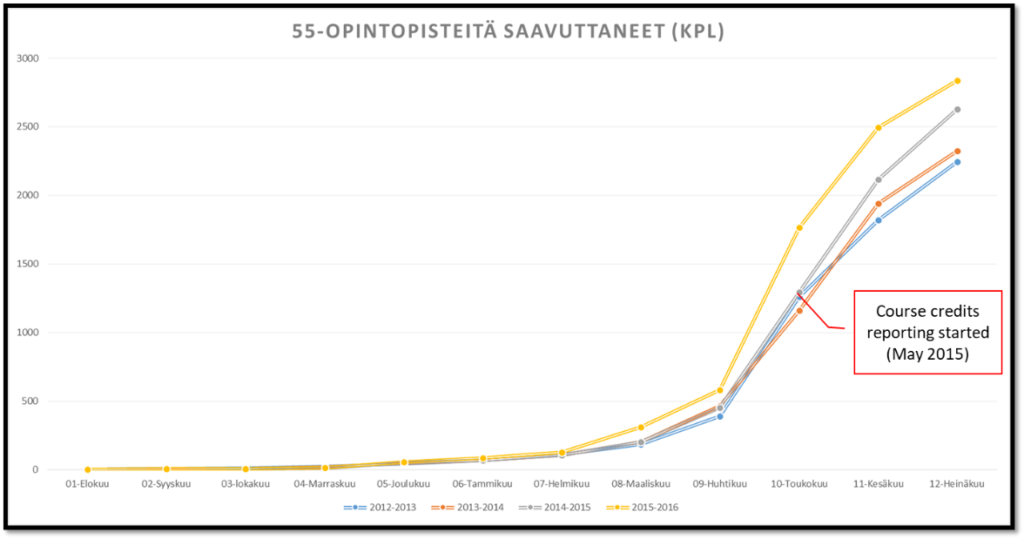HAMK’s RDI activities have become increasingly effective
When established in 1996, HAMK’s RDI activities were cooperation with companies and the public sector, with students participating in projects. HAMK reached Minedu’s status of Centre of Excellence of regional impact twice and became the most significant project actor in its region, even though the projects did not always form a mutually supportive entity. In time, five focused education and research centres were set up to enhance multidisciplinarity and serve the needs of the labour market, later replaced by four research units. Regional development was strengthened by the start-up incubator and business services (today’s Entrepreneurial University).
External evaluations on RDI activities were conducted in 2013, 2015 and 2019. The impact of RDI activities has been increased and HAMK has progressed from individual projects onto multidisciplinary and more effective project portfolios in line with strategy and profile. The networks have expanded and become more international. Multidisciplinary teamwork has continued to be developed in both education and RDI activities. Regional cooperation has also been developed.
The roots of goal-oriented profiling work are deep
HAMK has carried out profiling work as from its beginning with a principle: the work in units should not overlap and regional needs and differences should be considered. The division of labour between education and RDI activities has later been guided by strategies.
The HAMK 2020 strategy (2014) included guidelines for reforming the structure of education and establishing research units which required clarification of profiles. Systematic profiling work was launched in 2015 to focus the competences in education and to define the flagships research. In addition to top management, hundreds staff members and stakeholders participated in the profiling work which included workshops utilising the methods of future research. The workshops were preceded by guided preparations in the units, which were based on rectors’ development ideas. The results of the work were iterated, and progress was made from understanding the basic principles towards specific profiles evaluated by the world of work. The process was long and laborious because of the difficulty of redirecting thinking and making choices.
Currently, profiling is realised as part of curriculum and research programme work. Integrating unit profiles into HAMK’s operation area strategies remains an important part of profiling work. An international perspective has been included.
From collecting data to the real-time analysis and acting
HAMK’s quality system has always collected information on activities. The first reporting portal in 2005 monitored financial indicators. The construction of knowledge management data infrastructure was started in 2015. The first automated report on the accumulation of credits provided a situational picture and caused the productivity leap in the 55 credits accumulation. This successful step encouraged to strengthen knowledge management further.

As from 2020, an independent team has realised the development of systems. Tools and visualisations are now developed in an agile manner, experimenting and responding to information needs (e.g. the user-driven MyBI concept).
Performance monitoring has become more automated, real-time analytics supporting management. It covers strategic and tactical level analyses as well as real-time operational work reporting. The development focus is on predictive and explanatory analytics, and promoting staff knowledge literacy. This will be reflected in the ability to make decisions based on information, which contributes to improving the performance of the activities.
The development of Project Services has strengthened the capacity for impactful RDI activities.
Project activities have been supported centrally at HAMK throughout its existence. The support service has been developed to meet the strategic objectives and the needs of the operational environment. This strengthens the capacity to successfully participate in funding applications and to implement projects.
The Project Services team assist in finding sources of funding and preparing applications. It monitors the financial progress of HAMK projects. As a rule, projects are now successfully implemented throughout their lifecycle in accordance with the plans presented in applications to the funding providers.
The RDI project processes have been modelled: The guidelines for starting and ending the project were renewed. The process also harmonises the activities in information, risk, and material management, contract processing, and project communications. Research funding is being applied for from more and more demanding funding sources. RDI actors are trained in contract technology and interpreting funding providers’ instructions. The project information systems support project management, and a reform of tools is under way.
The support provided by Project Services has strengthened the RDI activities. This can be seen, for example, in a more extensive access to competitive RDI funding.